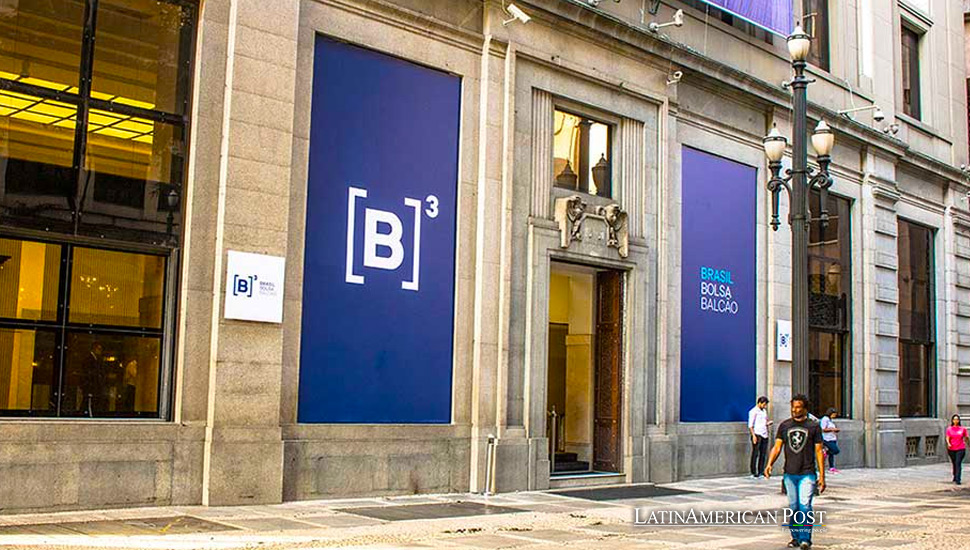Brazil’s B3 Pioneers Bitcoin Futures in Latin America

Brazil’s B3 exchange is set to launch bitcoin futures trading, marking a significant milestone in Latin America’s financial landscape and showcasing the region’s growing embrace of cryptocurrency as a legitimate and valuable asset class.
Introducing Bitcoin Futures Trading
In a landmark decision that positions Brazil at the forefront of cryptocurrency integration in Latin America, B3, the nation’s leading exchange operator, announced it received regulatory approval to launch bitcoin futures trading. Slated to commence on April 17, this move reflects Brazil’s progressive stance on digital currencies and signals a broader shift in Latin America’s approach to financial innovation and technology adoption.
B3, known for offering a range of financial instruments, including exchange-traded funds (ETFs) and receipts of ETFs related to crypto assets, is expanding its portfolio to include bitcoin futures. This addition is significant, as it introduces a regulated and structured way for investors to engage with one of the world’s most volatile and discussed assets. The futures will be linked to the Nasdaq Bitcoin Reference Price, with each contract representing 10% of bitcoin’s price in Brazilian reais, offering a new tool for financial hedging and investment in the region.
B3’s introduction of bitcoin futures is a response to the growing demand for sophisticated financial products that provide exposure to bitcoin’s price movements without the complexities and risks associated with direct cryptocurrency ownership. As Felipe Goncalves, B3’s superintendent of swap rates and currency products, articulated, this launch offers a derivative that meets market needs for hedging against bitcoin’s price fluctuations or gaining directed exposure to the digital asset.
Shaping Latin America’s Financial Landscape
This development is more than just a new financial product offering; it reflects the evolving financial landscape in Latin America, where there is increasing recognition of cryptocurrencies’ potential as both investment assets and tools for economic diversification. Brazil’s move to integrate bitcoin futures into its financial market infrastructure indicates its broader ambition to establish itself as a hub for financial innovation and technology-driven investment in the region.
The decision to base the futures on a financial settlement mechanism rather than involving buying or selling Bitcoin underscores the intent to provide a secure and regulated environment for cryptocurrency exposure. This approach minimizes the risk associated with the direct handling of cryptocurrencies, addressing concerns around security and volatility that often deter institutional investors.
Brazil’s foray into bitcoin futures trading is occurring in collaboration. Across Latin America, there is a growing trend of embracing digital currencies and blockchain technology, driven by a combination of economic factors, technological advancements, and shifting societal attitudes towards traditional banking and financial systems.
Countries like Argentina and Venezuela have seen a surge in cryptocurrency usage, propelled by high inflation rates and economic instability that have eroded trust in conventional currencies. Meanwhile, El Salvador made headlines by becoming the first country to adopt Bitcoin as a legal tender, albeit amidst controversy and mixed results.
The broader Latin American region is witnessing a fintech revolution, with startups and financial institutions exploring blockchain applications, from remittances and payments to asset tokenization and decentralized finance (DeFi) solutions. This burgeoning interest in digital finance and cryptocurrencies is part of a larger narrative of technological empowerment and financial inclusion, aiming to address the long-standing issues of banking access and economic disparity in the region.
Collaboration and Regional Dynamics
However, the journey towards widespread cryptocurrency adoption and integration into the formal financial sector in Latin America is fraught with challenges. Regulatory hurdles, infrastructure limitations, and concerns about illicit financial flows and market stability are significant obstacles that countries must navigate. Brazil’s regulatory approval for B3 to offer bitcoin futures represents a crucial step in addressing these challenges, providing a legal and structured framework for cryptocurrency trading.
As Latin America continues to explore the potential of cryptocurrencies and blockchain technology, Brazil’s launch of bitcoin futures could serve as a blueprint for other nations in the region. It offers valuable insights into balancing innovation with regulatory oversight, enhancing market stability, and fostering a conducive environment for digital finance growth.
Also read: Brazil’s Coffee Surge: Echoes of Latin America’s Agrarian Shift
B3’s introduction of bitcoin futures trading in Brazil marks a pivotal moment in Latin America’s financial sector, signifying a growing acceptance of cryptocurrencies as legitimate financial instruments. This move caters to the increasing demand for crypto-related products and positions Brazil as a leader in financial innovation in the region. As Latin America navigates its path toward digital economy integration, the evolution of cryptocurrency markets like those pioneered by B3 will play a critical role in shaping the region’s financial future.




